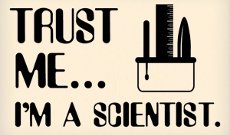Facebook allows people to purchase a Facebook plan. For small fee, you can access only Facebook from your device, not the internet, just Facebook.
Facebook is big and a lot of people limit all their online interaction to the walled garden. I can almost picture a Twitter plan for that matter. How about a Wikipedia plan? A future where you get an app subscription service that carefully filters your packets to be limited to a single approved company.
Digital kids, born in the past few years, will grow up and see this as the norm. They will buy devices that exclusively connects to a product. This could become a huge profit machine because the provider of said service shields the users from the rest of the world. They become exclusive customers who will not get a hint of the vastness of the web.
If someone were to criticize the product, they will be heard by no one. Because it violates some policy clearly stated somewhere in the terms and conditions that no one ever bothers to read. The article will be quickly deleted and yanked of the garden. To most, the deleted content never existed because it was never featured on their device.
This is why we need to teach about the internet. The internet is world wide and it doesn't discriminate. (At least not as of yet) It allows all information to pass freely. Kids are being brought up in walled gardens and are not seeing what's outside. Not picking on Facebook or any other social network in particular, but the internet is bigger then them all combined.
When you go to Wikipedia to complete that homework you forgot about until the last minute, click on those links below in the reference section. Wikipedia is one of the marvel of our generation. It consolidated information that would have been very hard to find only a few years ago. The keyword here is consolidated. Where did this information come from in the first place?
Wikipedia is not a news outlet. The editors gather data from all around the web and create these well crafted encyclopedia pages. Without the rest of the web, there is no Wikipedia. Wikipedia is very important. But the web is more important. Wikipedia can disappear if it doesn't get enough donations, but the web is here to stay.
You can find all sorts of videos on YouTube. Before YouTube, I didn't click on video links because I knew they will take too long to load and will be of crappy quality. So YouTube solved this problem. But what happens when you put a video on YouTube that doesn't follow their terms? They remove it and you have zero say.
The solution here is not just that you can find another service provider that will allow you to publish. There is nothing stopping you from uploading your video on your own server connected to the rest of the world. This freedom is the power of the internet. It doesn't rely on Snapchat, Facebook, Twitter, Tumblr or anything for that matter.
That's why we need to teach about the internet. The opportunity it creates. The connection. Just because one social network is down doesn't mean you can't communicate with others.
Videos are beyond YouTube. Social interaction is beyond Facebook. Believe or not, surfing the web is beyond your browser.
By limiting the next generation to a few sets of websites we are taking away the power that we have today on the internet.
Let's switch from "There is a website that does this" to "You can do this on the internet."





Comments
There are no comments added yet.
Let's hear your thoughts